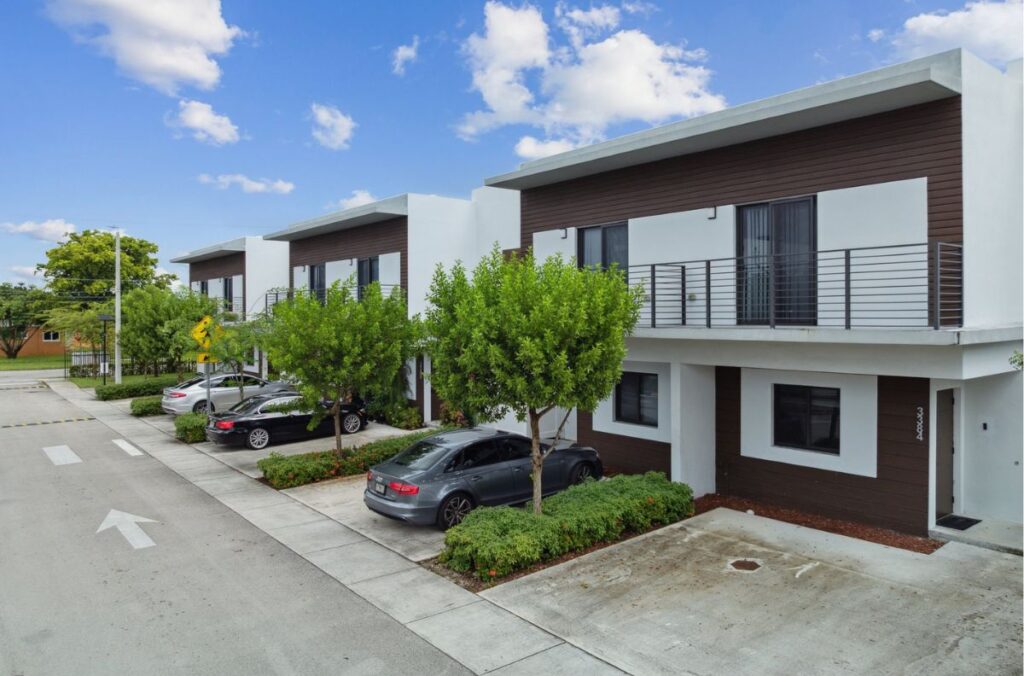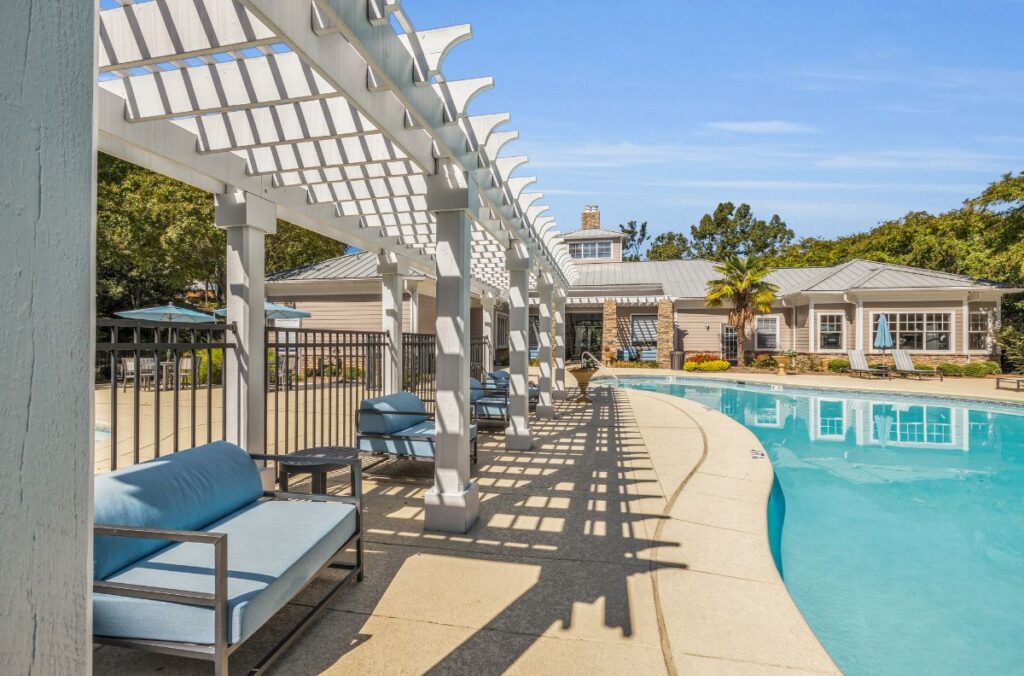Innsbrook-based firm drops $1.6M for half-acre in Scott’s Addition
August 26, 2019
As it makes its first foray into from-scratch development, a local real estate firm has closed on the first piece of what’s planned to be three buildings, including an 11-story tower, in one of Richmond’s most sought-after neighborhoods.
Henrico-based Capital Square last month paid $1.6 million for a half-acre site at 2900 and 2904 W. Clay St., where it plans a five-story, 60-unit apartment building.
The firm, based in Innsbrook and run by founder and CEO Louis Rogers, is also under contract to purchase nearby 2911 W. Moore St., where an 11-story, 250-unit apartment building will rise as the tallest in the neighborhood, as well as 3000-3008 W. Clay St., which will house a five-story apartment building with 80 apartments and on-site parking.
The three projects, dubbed Scott’s Collection, are a $90 million undertaking that marks Capital Square’s initial push into development after years of acquiring existing apartment, office and retail properties using pooled funds from 1031 exchanges.
“The time for us to move forward with this is now, because Scott’s Addition – and much of the city – is on fire,” Rogers said. “Typically, we’re the ones to invest in such a project after it’s been developed and has been in business for a while, but given what’s happening in the market … We think it’s time to invest in the market.”
Capital Square has added to its ranks as it transitions into development.
Adam Stifel, a former Washington, D.C. developer with a knack for infill multifamily development, recently joined the firm to serve as its executive vice president of development. It also hired Jake Baum, a former business associate of Stifel’s development firm in Washington, as Capital Square’s development manager.
They’ll oversee the Scott’s Collection’s development, along with additional acquisitions across the region.
“We see (Scott’s Collection) as being a prototype of what we want to further invest in across the city, and cities similar to Richmond,” Stifel said. “We’re looking at places here, such as Manchester, and in other cities, like Raleigh and Washington, D.C., for similar deals.”
Scott’s Collection Scott’s Collection One, to be built on the half-acre at 3000-3008 W. Clay St., will be the first of the three to begin construction, Rogers said. The property currently has a two-story home and a facility for Truetimber Arborists. Capital Square expects to close on that site next month and will spend $17 million to develop it. The property most recently was assessed by the city for about $1.1 million.
Next would come Scott’s Collection Two at the Clay Street site Capital Square bought July 18.
The half-acre site had been marketed as a potential food hall, but those plans never materialized. Three small existing structures will be razed to make way for the $13 million second phase. The properties most recently were assessed by the city for $1.1 million, according to city real estate records.
An assemblage of now vacant buildings, that was once slated to be a food hall, has been purchased by Capital Square for $1.6 million as part of its Scott’s Collection development. (J. Elias O’Neal)
Construction for both Scott’s Collections One and Two would begin around the end of the first quarter of 2020, taking about 12 to 18 months to complete, Stifel said.
The biggest and final piece – the $52 million Scott’s Collection Three – will rise on the 0.7-acre West Moore Street parcel, where a warehouse and storage facility currently stands at the corner of Altamont Avenue. It most recently was assessed by the city for $1.5 million, according to city real estate records.
The site is zoned TOD-1, or “transit-oriented nodal district,” which allows for buildings up to 12 stories and reduces parking requirements along the Boulevard, Myers Street and West Broad Street corridors bordering Scott’s Addition to the east and south. Scott’s Collection Three will be the first new development to take advantage of the new zoning and go up to nearly the limit of its height restriction.
The tower also will include ground-floor retail fronting West Moore Street, and a pool and gym to be shared by all residents in Scott’s Collection’s three properties. Construction could start by the end of the second quarter of 2020 and take about two years to finish.
Each of the units in Scott’s Collection, a mix of one and two bedrooms, will be market rate, Rogers said. Apartment rents in Scott’s Addition average around $1,200 a month for a one-bedroom unit, and up to $1,950 for a two-bedroom unit in Scott’s Addition.
Capital Square has retained Richmond-based 510 Architects to design the buildings. Rogers said the firm still is interviewing general contractors to construct the buildings.
New direction
Rogers said acquiring property to develop on its own strays from Capital Square’s playbook.
For years, the company has invested in a variety of properties across the U.S., ranging from apartment communities to dialysis centers, by pooling money from investors looking for a 1031 exchange.
But with local real estate growth besting national averages, and demand for new multifamily housing remaining strong in the city, Rogers said it was time for Capital Square to step out on its own turf to explore development as a new source of investment.
“First we were going to outsource the development to Adam’s firm, but then we decided, ‘We have people, we have all the resources, we have all the things you would need, why duplicate them?’ So we did an immersion,” Rogers said.
Its new direction will be funded with a mix of private equity and Opportunity Zone funding.
The program, which was created by President Donald Trump’s 2017 tax package and is overseen by the U.S. Treasury Department, reduces capital gains taxes for investors that help finance real estate projects in about 8,700 census tracts designated as Qualified Opportunity Zones across the U.S. and Puerto Rico.
Opportunity Zones enable real estate developers to pool together funds from investors as an alternative way to complement traditional financing.
About 212 Opportunity Zones were created in Virginia, according to the Virginia Department of Housing and Community Development. While the program was created to help economically depressed areas, the Virginia zones chosen include several increasingly popular neighborhoods across Richmond, such as Scott’s Addition.
Capital Square has created three separate opportunity zone funds for the three developments, where it seeks to raise $7 million, $4.5 million and $21 million in equity for Scott’s Collections One, Two and Three, respectively.
Opportunity Zones allow investors tax advantages on the proceeds from the sale of just about anything, as opposed to 1031 exchanges, which apply only to avoiding capital gains taxes on the sale of real estate.
“1031 exchanges are great for real estate investors,” Rogers said. “But the Opportunity Zone covers any capital gain, so if someone sold stocks or bonds, or their business, or assets … this gives them an avenue for further investment.”
Capital Square’s Scott’s Collection adds to the bevy of developers seeking Opportunity Zone investment.
Richmond-based Lynx Ventures’ The Current in Manchester, which is underway along Hull Street, is using Opportunity Zone funding for its project. South Falls, another mixed-use project in Manchester by WVS Cos.’ Jason Vickers-Smith and Richard Souter, along with Tom Papa, who runs Fountainhead Properties, secured similar funding for its project.


